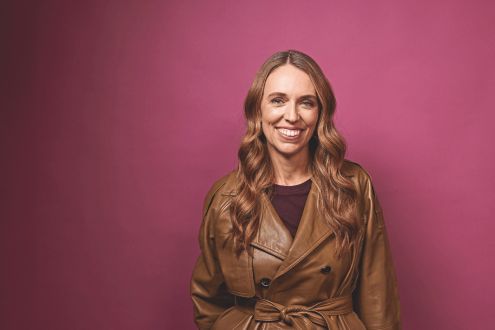Combat busy-ness and slow down — Coaching in Action

In part two of Coaching in Action, award-winning coach Kim Morgan decides it’s time to get tough with super-busy client Ruth
Words: Kim Morgan.
Read part one here!
Ruth didn’t turn up for her second coaching session. I tried messaging and emailing her to ask if everything was okay, but I had no response. The next morning, I received an email: ‘Apologies — completely forgot our session. Didn’t see your messages until last night. Manic here. Reschedule this week?’
It wasn’t easy for me to reschedule but I moved some appointments and offered Ruth an online session a couple of days later. She joined the video call ten minutes late with her usual refrain: ‘I’m so busy… but I made it.’ She added: ‘I had to move four meetings. I haven’t eaten all day. I’m knackered.’
I found myself feeling frustrated by Ruth’s focus on her own busyness and her sacrifices to be here, with little awareness that I had also made adjustments to prioritise our time together. Sometimes when a coach has a strong response to a client, it is worth asking: ‘Is this about me and my “stuff” or am I perhaps feeling what others might feel in response to this person’s behaviours?’
“Don’t confuse having a career with having a life.” Hillary Clinton
This was only our second coaching session, and I hadn’t got to know Ruth well, but I didn’t feel I could proceed without having an honest discussion with her.
‘I’m pleased you made time for this session, and I can see how overwhelmed you are with work commitments. I’m wondering about your level of commitment and your readiness to have coaching now.’
Ruth looked taken aback, then nodded slowly. ‘Okay, I get why you are asking the question,’ she said. ‘Respect to you for challenging me — not many people do! I guess it seems like I’m not taking this seriously?’
‘I’m not judging,’ I said, ‘I am just wondering how important coaching is to you now, given everything else you’ve got going on?’
Ruth paused, then said: ‘I think it is very important… But everything else feels urgent. It’s like my whole life is a giant to-do list.’ ‘What if you were to check in with the part of you that wants to be here for coaching, and the part of you that keeps pulling you away — what would each part say?’

Ruth answered immediately: ‘That’s easy. One part says, “This is your chance to change your life.” The other part says: “You don’t have time to change your life.”’
I felt like I had got Ruth’s interest and attention. I wanted to keep the conversation going. ‘Bear with me on this — it may seem a bit “woo-woo”, but how do you feel about bringing these two parts to life? Giving them characters and personalities?’
Ruth looked excited. ‘I’m up for it! What do I do?’ I asked Ruth to imagine them as two people sitting in front of her and having a conversation about their opposing views.
‘That’s easy. The one who wants me to stick at the coaching and change my life is “Courage” — a brave, free-spirited woman who reminds me of all my talents and resources, that life is short, and adventures await.
‘The other one is “Fear”, who says, “be careful”. I can’t see them clearly. They are hiding. They say “Don’t take chances or make mistakes. Work hard. Keep busy. Don’t waste time being coached. Watch out for people climbing the ladder behind you.”’
I asked her: ‘What do they each want from you? What are they afraid of? What do they need to be able to trust one another?’ Ruth said she would like some time to think about these questions. As we were nearing the end of the session, I suggested that she could do this thinking as ‘homework’.
‘I promise I will do it,’ Ruth said. I shook my head. ‘I don’t need you to promise it to me, but I think you need to promise it to your future self.’
As Ruth was leaving, she said: ‘The biggest impact of this session has been you calling me out. You challenged the smokescreen of busyness that I wrap around myself, and you haven’t bought into my “story”. I have needed someone to do that for a long time. I’ve realised today that coaching is not just about questions and unconditional support, but it is also about challenge and tough love. Thank you — I will be back!’

Mind your own busy-ness!
If you are an ambitious high achiever, the idea of slowing down can feel risky or even self-indulgent.
Although you may know that your level of busy-ness is not sustainable and that you ‘should’ change, you can find yourself caught in a relentless cycle of overworking.
Make time to pause and consider the following ten questions to understand the intention and impact of your busyness:
- ● What do I believe would happen if I stopped working so hard?
- ● What would I think of myself if I worked less?
- ● What do I avoid by being busy?
- ● What could I be doing with my life if I were not so busy?
- ● What messages did I learn in my early life about keeping busy, achieving and being useful?
- ● What messages would I give my younger self now?
- ● Apart from feeling ‘busy’ — how do I feel physically, emotionally and mentally?
- ● What am I craving or needing?
- ● What am I putting off until one day when I am not so busy?
- ● What might be the benefits and costs of my working pattern?
No pressure: you don’t have to act on this exercise yet. Simply noticing can build awareness and insight.

Are you Victim, Villain, Hero… or simply an Adult?
This is a useful exercise which can help you recognise the roles you might be playing in certain situations or relationships. The three roles — victim, villain, hero — form the three corners of the ‘relationship triangle’.
Step 1: Tell the story
Think of a relationship or situation which is troubling you in terms of how you are responding to it. Write a short paragraph describing what’s going on.
Step 2: Identify the roles
Now, reflect on your story:
- ● Victim: To what extent do you feel powerless, overwhelmed, or like things are happening to you?
- ● Villain: Who or what are you blaming (this could include yourself)?
- ● Hero: To what extent do you feel the need to play the hero or rescuer in this relationship or situation?
Step 3: Tell the story again…
Now tell the story one last time, from an adult perspective, taking 100% responsibility for your part in it. How does it feel to tell the story this way? If you dropped any of the victim, villain or hero behaviours, what would be different for you?
Interested in becoming a coach and making a difference? Visit barefootcoaching.co.uk
Kim Morgan is an internationally recognised expert in coaching and coach training, one of the select band of coaches accredited by the ICF as a Master Certified Coach.









